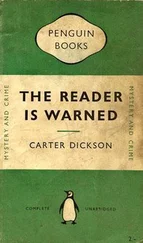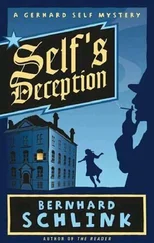I felt as if we were sitting all together for the last time around the round table under the five-armed, five-candled brass chandelier, as if we were eating our last meal off the old plates with the green vine-leaf border, as if we would never talk to each other so intimately again. I felt as if I were saying goodbye. I was still there and already gone. I was homesick for my mother and father and my brother and sisters, and I longed to be with the woman.
My father looked over at me. “ ‘I’m going back to school tomorrow’-that’s what you said, isn’t it?”
“Yes.” So he had noticed that it was him I’d asked and not my mother, and also that I had not said I was wondering whether I should go back to school or not.
He nodded. “Let’s have you go back to school. If it gets to be too much for you, you’ll just stay home again.”
I was pleased. And at the same time I felt I’d just said my final goodbyes.
F OR THE next few days, the woman was working the early shift. She came home at noon, and I cut my last class every day so as to be waiting for her on the landing outside her apartment. We showered and made love, and just before half past one I scrambled into my clothes and ran out the door. Lunch was at one-thirty. On Sundays lunch was at noon, but her early shift also started and ended later.
I would have preferred to skip the shower. She was scrupulously clean, she showered every morning, and I liked the smell of perfume, fresh perspiration, and streetcar that she brought with her from work. But I also liked her wet, soapy body; I liked to let her soap me and I liked to soap her, and she taught me not to do it bashfully, but with assurance and possessive thoroughness. When we made love, too, she took possession of me as a matter of course. Her mouth took mine, her tongue played with my tongue, she told me where to touch her and how, and when she rode me until she came, I was there only because she took pleasure in me and on me. I don’t mean to say that she lacked tenderness and didn’t give me pleasure. But she did it for her own playful enjoyment, until I learned to take possession of her too.
That came later. I never completely mastered it. And for a long time I didn’t miss it. I was young, and I came quickly, and when I slowly came back alive again afterwards, I liked to have her take possession of me. I would look at her when she was on top of me, her stomach which made a deep crease above her navel, her breasts, the right one the tiniest bit larger than the left, her face and open mouth. She would lean both hands against my chest and throw them up at the last moment, as she gave a toneless sobbing cry that frightened me the first time, and that later I eagerly awaited.
Afterwards we were exhausted. She often fell asleep on top of me. I would listen to the saws in the yard and the loud cries of the workers who operated them and had to shout to make themselves heard. When the saws fell silent, the sound of the traffic echoed faintly in the kitchen. When I heard children calling and playing, I knew that school was out and that it was past one o’clock. The neighbor who came home at lunchtime scattered birdseed on his balcony, and the doves came and cooed.
“What’s your name?” I asked her on the sixth or seventh day. She had fallen asleep on me and was just waking up. Until then I avoided saying anything to her that required me to choose either the formal or the familiar form of address.
She stared. “What?”
“What’s your name?”
“Why do you want to know?” She looked at me suspiciously.
“You and I… I know your last name, but not your first. I want to know your first name. What’s the matter with…”
She laughed. “Nothing, kid, there’s nothing wrong with that. My name is Hanna.” She kept on laughing, didn’t stop, and it was contagious.
“You looked at me so oddly.”
“I was still half asleep. What’s yours?”
I thought she knew. At that time it was the in thing not to carry your schoolbooks in a bag but under your arm, and when I put them on her kitchen table, my name was on the front. But she hadn’t paid any attention to them.
“My name is Michael Berg.”
“Michael, Michael, Michael.” She tried out the name. “My kid’s called Michael, he’s in college.”
“In high school.”
“In high school, he’s what, seventeen?”
I was proud at the two extra years she’d given me, and nodded.
“He’s seventeen and when he grows up he wants to be a famous…” She hesitated.
“I don’t know what I want to be.”
“But you study hard.”
“Sort of.” I told her she was more important to me than school and my studies. And I wished I were with her more often. “I’ll have to repeat a class in any case.”
“What class?” It was the first real conversation we’d had with each other.
“Tenth grade. I’ve missed too much in the last months while I was ill. If I still wanted to move up next year I’d have to work like an idiot. I’d also have to be in school right now.” I told her I was cutting classes.
“Out.” She threw back the coverlet. “Get out of my bed. And if you don’t want to do your work, don’t come back. Your work is idiotic? Idiotic? What do you think selling and punching tickets is?” She got out of bed, stood naked in the kitchen being a conductor. With her left hand she opened the little holder with the blocks of tickets, using her left thumb, covered with a rubber thimble, to pull off two tickets, flipped her right hand to get hold of the punch that hung from her wrist, and made two holes. “Two to Rohrbach.” She dropped the punch, reached out her hand for a bill, opened the purse at her waist, put the money in, snapped it shut again, and squeezed the change out of the coin holder that was attached to it. “Who still doesn’t have a ticket?” She looked at me. “Idiotic-you don’t know what idiotic is.”
I sat on the edge of the bed. I was stunned. “I’m sorry. I’ll do my work. I don’t know if I’ll make it, school only has another six weeks to go. I’ll try. But I won’t get through it if I can’t see you anymore.” I…” At first I wanted to say, I love you. But then I didn’t. Maybe she was right, of course she was right. But she had no right to demand that I do more at school, and make that the condition for our seeing each other again. “I can’t not see you.”
The clock in the hall struck one-thirty. “You have to go.” She hesitated. “From tomorrow on I’m working the main shift. I’ll be home at five-thirty and you can come. Provided you work first.”
We stood facing each other naked, but she couldn’t have seemed more dismissive if she’d had on her uniform. I didn’t understand what was going on. Was she thinking of me? Or of herself? If my schoolwork is idiotic, that makes her work even more so-that’s what upset her? But I hadn’t ever said that my work or hers was idiotic. Or was it that she didn’t want a failure for a lover? But was I her lover? What was I to her? I dressed, dawdling, and hoped she would say something. But she said nothing. Then I had all my clothes on and she was still standing there naked, and as I kissed her goodbye, she didn’t respond.
W HY DOES it make me so sad when I think back to that time? Is it yearning for past happiness-for I was happy in the weeks that followed, in which I really did work like a lunatic and passed the class, and we made love as if nothing else in the world mattered. Is it the knowledge of what came later, and that what came out afterwards had been there all along?
Why? Why does what was beautiful suddenly shatter in hindsight because it concealed dark truths? Why does the memory of years of happy marriage turn to gall when our partner is revealed to have had a lover all those years? Because such a situation makes it impossible to be happy? But we were happy! Sometimes the memory of happiness cannot stay true because it ended unhappily. Because happiness is only real if it lasts forever? Because things always end painfully if they contained pain, conscious or unconscious, all along? But what is unconscious, unrecognized pain?
Читать дальше












